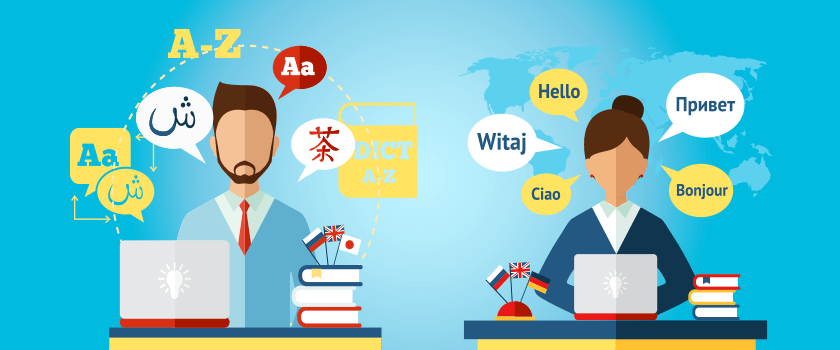The rate of e-commerce in the United Arab Emirates (UAE) has seen a rapidly increasing trend during the last decade and has changed the way consumers make purchases and businesses conduct their processes. The UAE has one of the most appealing e-commerce markets in the Middle East due to the large amount of internet penetration and a high purchasing power of its population which is highly techno savvy. In the case of international businesses and especially German firms that have interest in the region, translation is a key element in determining success. The linguistic distance is not only erased but creates an occasion to deal with localization, compliance, and cultural adaptation, which are quite essential to the sustainable growth of the competitive digital market in the UAE.
Reasons Why German Businesses Show Interest in UAE E-Commerce Market
The UAE e-commerce industry has been developing at a rapid pace with a valuation of more than USD 17 billion in 2024 and more projected ahead in the next few years. The fact that a large percentage of society consists of expatriates in the country makes the customer base diverse and cosmopolitan. German products already carry a good reputation based on quality and reliability and this fact puts German businesses at an advantage when venturing in UAE.
This opportunity can also be supported by the digital adoption of the UAE. The environment is very favorable as one of the highest rates of internet penetration in the world and a population that adopts online shopping, online wallets and international platforms easily. To this, the location of the UAE as a trade and logistical centre between Europe, Asia, and Africa and the argument that German firms should increase its presence in e-commerce in this region is all the more compelling. Nevertheless, to succeed in such a market does not only take logistics and infrastructure, it takes cultural and linguistic accommodation in the form of successful translation.
Developing the Trust with Right Translation
Successful e-commerce is based on trust and language is at the center stage of achieving that. By giving the product descriptions, payment instructions and customer support in correct and understandable Arabic, when German businesses, the customers are assured that their experience is important to the brand. The ill translated text may lead to misunderstanding or even loss of trust, and on the other hand, the right messages translated in an excellent manner help to retain the professional image of the brand.
It is not only restricted to word translation. It is important that the values that the German brands are characterized with, including precision, reliability, and quality, would be translated into the Arabic language without any loss of tone or meaning. There are also legal and regulatory sources like terms of service or returns policies that need to be translated carefully to attain the compliance to the UAE consumer protection laws. German e-commerce companies minimise risks and enhance the relationship with the new customers with the investment in the professional translation services.
User Experience Improvement by Localization
Whereas translation is a solution to the fundamental language barrier, localization makes the shopping experience of the UAE customer natural. It involves changing the words as well as the formats, visuals and systems that underline the e-commerce platform.
In particular, the price of products may be added in the UAE dirhams instead of in euros so as not to confuse. Marketing communications should embody the cultural values at the local level, especially in the sensitive areas like clothing, cosmetic and foodstuff. The design as well as the imagery applied in the online stores must be in harmony with the culture whereby products should be displayed in a manner that does not threaten modesty and tradition.
Localization also goes further to the technical facets such as payment mode. Cash-on-delivery, in addition to credit cards and local gateways remain very popular among many UAE consumers. Checkout processes should be adjusted accordingly to enhance the rate of conversion. Another aspect where localization will be beneficial is in search engine optimization; the product description must be written in Arabic taking into consideration the search words that the UAE consumers normally use, and it may not necessarily be the same as in direct German. By doing so, German translation will be a pillar in giving the e-commerce experience a full localization.
Cultivating Business Communication and Partnerships
When entering the UAE, it is common to meet logistics partners, government body and local marketers. There should be effective communication at all levels including contract negotiation and coordination of supply chains. German translation by professionals is used to make sure that an agreement, compliance documents and technical specifications are properly interpreted and not a single costly misunderstanding is left.
To take an illustration, a German firm operating with a warehouse company based in the UAE requires translated service-level agreements and inventory records that do not leave any room to interpretation. On the same note, marketing campaigns initiated through local media sources, must have culturally sensitive messages in order to appeal to the target groups. In both instances, translation can help to facilitate the smoother working and tightening of business relations, which makes the expansion more sustainable.
Getting to a Multilingual Audience
Even though Arabic is the official language in the UAE, English is commonly spoken in business and its use is common with most of the expatriates of European and Asian origin. Meanwhile, a significant percentage of the residents prefers to shop in Arabic online, especially in the industries related to the lifestyle, medical services, and domestic supplies. In the case of German companies, a multilingual approach with the use of Arabic, English, and German will make it possible to reach a greater number of people.
This not only appeals to the various consumer preferences but it also enhances brand awareness among various communities. German speaking expatriates will be more at home since they get their language reflected and Arabic and English make it accessible to a wider market. With the introduction of the German translation into a multilingual content strategy, the companies increase their inclusion and presence in the e-commerce environment in the United Arab Emirates.
Gaining a Competitive Edge
The e-commerce sector in the UAE is very competitive as the developed platforms such as Amazon and Noon compete with local startups that can be fast and responsive. Professional translation and localization in this environment gives an advantage to German firms. A brand that speaks the Arabic language in a friendly and respectful manner will show its dedication to the market, thus creating loyalty and customer retention.
The gains are more than reputation. Effective communication will help in reducing the number of abandoned carts, increase user experience and improve the conversion rate. In the long run, those firms, which focus on translation, establish a more robust presence in the UAE, not only benefiting from immediate sales gains, but also endures over time in a market, which is constantly changing at an accelerated pace.
Conclusion
The UAE presents the German companies with the special chance to grow to one of the most vibrant e-commerce markets on the planet. However, to be successful, one needs not just to deliver the goods through the borders but also the culture and language have to be aligned. German translation is key to this process, as it guarantees that the brand values are maintained, the trust of customers is established, and the local experiences are adjusted to the local expectations.
Professional translation supports all the elements of e-commerce growth: product description and contracts, customer service and search engine content. Through translation and localization, German firms joining the UAE market can realize sustainable growth, establish enduring relationships with their consumers and establish a place to prosper in the competitive digital economy of the region in the long term.


